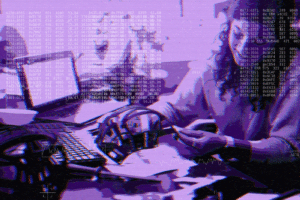3 min. read
The Machines Are Coming Home , But the Jobs Aren’t
We purchased a myth, many years ago: factories move where labor is cheap. China rose, America lost its factories, Europe went services. Wages were in control.
That narrative isn’t true anymore. And clinging to it now is a dangerous fantasy.
We are no longer in the age of production for labor.
We are in the age of machine production, and the implications are earth-shaking.
The Great Manufacturing Mirage
It is time to shed the illusion of 1980s China, tens of millions of workers on limitless assembly lines turning out the goods of the world. That is a thing of the past.
China is not a story of labor anymore.
It is an automation superpower.
- In 2023, China placed more than half of the industrial robots in the world.
- Adjusted for wage differences, China has 12.5 times as many robots as America.
- China is not attempting to win with low-cost hands, it’s winning with fast, relentless, precise machines.
And what about the United States?
It’s trying to catch up.
- American manufacturers ordered a record 44,000 robots in 2023.
- Tariffs on Chinese imports are meant to “bring production home”, but not for human workers.
- These are not factories that bring life back to Rust Belt cities. These are lights-out factories, operated by software.
This is the true change:
Production is coming home. The work isn’t.
The End of Labor Arbitrage
If computers do the work, labor costs don’t count anymore.
This annihilates the economic rationale for globalization as we knew it.
Why produce on the opposite side of the ocean when you can produce next door to your clients, R&D, or logistics centers, with machines that work 24/7 and never form unions?
Cost geography has been flattened by automation.
Manufacturing today tracks resilience, IP security, data flow, and control strategy, not wage slopes.
This is not deglobalization.
It’s relocalization of value chains, powered by robots.
The Human Consequence
Let’s not be coy:
This is not a victory for workers , it’s a victory for capital.
Fewer hands are required to produce things.
And what are required are highly trained engineers, programmers, and data technicians , not the typical factory worker.
This is not merely a matter of who keeps a job.
It’s a matter of who keeps a future.
Without structural change, automation widens inequality:
- Productivity grows
- Profits accumulate
- The middle shrinks
- And tens of millions don’t have a clear path forward
This isn’t an economic shift.
It’s a civilizational one.
Europe’s Design Opportunity
Enter Europe.
With its history of social democracy, public works, and human-scale design, Europe is in a good position to lead , not in race-to-the-bottom cost-cutting, but in creating “automation with a human face.”
As economist Carlota Perez suggests, technological revolutions need institutional revolutions.
We need new models , not just machines.
Europe could lead the way in:
- Creating models of inclusive ownership (co-ops, data dividends, platform co-ops)
- Embedding climate goals into automated production
- Building public capability systems: education, mental health, care work, creativity
- Framing automation as a collective upgrade, not a class divide
The question is: will Europe transition fast enough, or get automated by someone else’s rules?
Automation and the Planet
There’s a further layer.
If automation brings production back home, it can:
- Cut transport emissions
- Enable circular material flows
- Encourage modular, repairable, zero-waste systems
But do it wrongly, and it’ll speed up energy use, waste, and monitoring.
What we choose , how we organize automation today, where we place it, and what values guide it , will define both our economies and ecosystems.
Automation is not neutral.
It’s either a regulator for renewal, or a catalyst for collapse.
Rethinking the Future
- If all is manufactured by machines, what will next be done by humans , and by whom?
- If robots are generating the profits, do we deserve a share for simply being in the system?
- Can Europe lead the way, between Silicon Valley techno-utopia and autocratic automation?
- Can we build a world where machines multiply dignity , not just margins?
The machines are coming home.
Not to restore the past , but to challenge us to build a new one.
Unveil Ideas, Ignite Innovation
Otso Lindfors
Founder & Visionary at Apxt Consulting
Passionate visionary at the helm of Apxt, igniting the fusion of design, strategy, and innovation. With a profound curiosity and an insatiable appetite for redefining possibilities, I orchestrate our journey to unravel the strategic depths of business and design. Just as a composer envisions harmonies, I craft strategic narratives that resonate with authenticity and excellence, leading Apxt towards a future defined by innovation.



